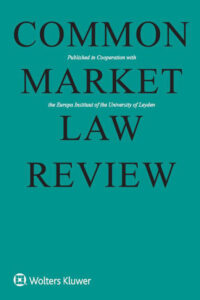The High Stakes of the Antitrust Exemption for Collective Bargaining
Competition vs Equality, Distributive Justice and Democracy

Over recent years, the scope of the Albany exemption has been progressively narrowed down. Much attention has already been devoted to the question of the possibility of the exemption covering collective labour agreements involving self-employed workers. However, a different challenge to the exemption has remained relatively obscure: namely, the second prong of the Albany doctrine, which requires improvement of working conditions. Currently, there are different approaches in Europe: some emphasize competition concerns, while others-solidarity. The article engages the question: what level of scrutiny should we apply to the antitrust exemption? Should we limit it to certain subjects or conditions? The article argues that we can only answer these questions by considering the real stakes of more intensive antitrust scrutiny and that we can only understand the real stakes by employing a thicker definition of collective bargaining. It shows that a choice of more intensive scrutiny and limitation of the scope of collective bargaining can lead to further weakening of social dialogue and a chilling of union activity. This comes at a time when unions are in decline in Europe, whereas employer organizations are strong. The article cautions that a choice to tighten the Albany conditions can trigger serious consequences from the perspectives of equality, distributive justice, and democracy. Those are the real stakes against which harm to competition should be considered.


